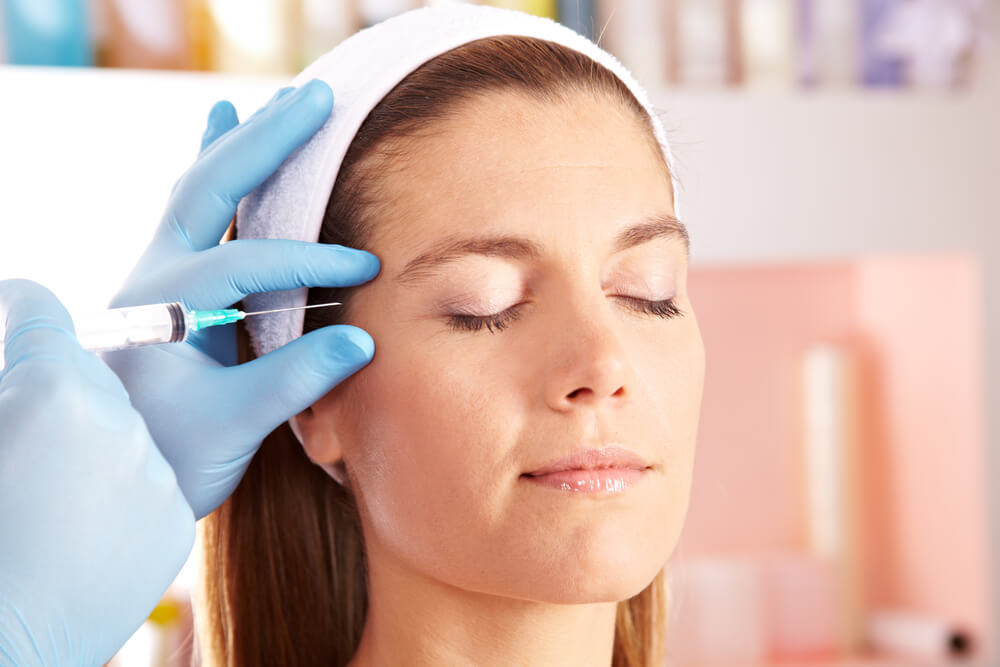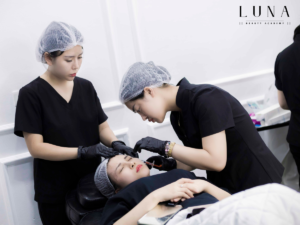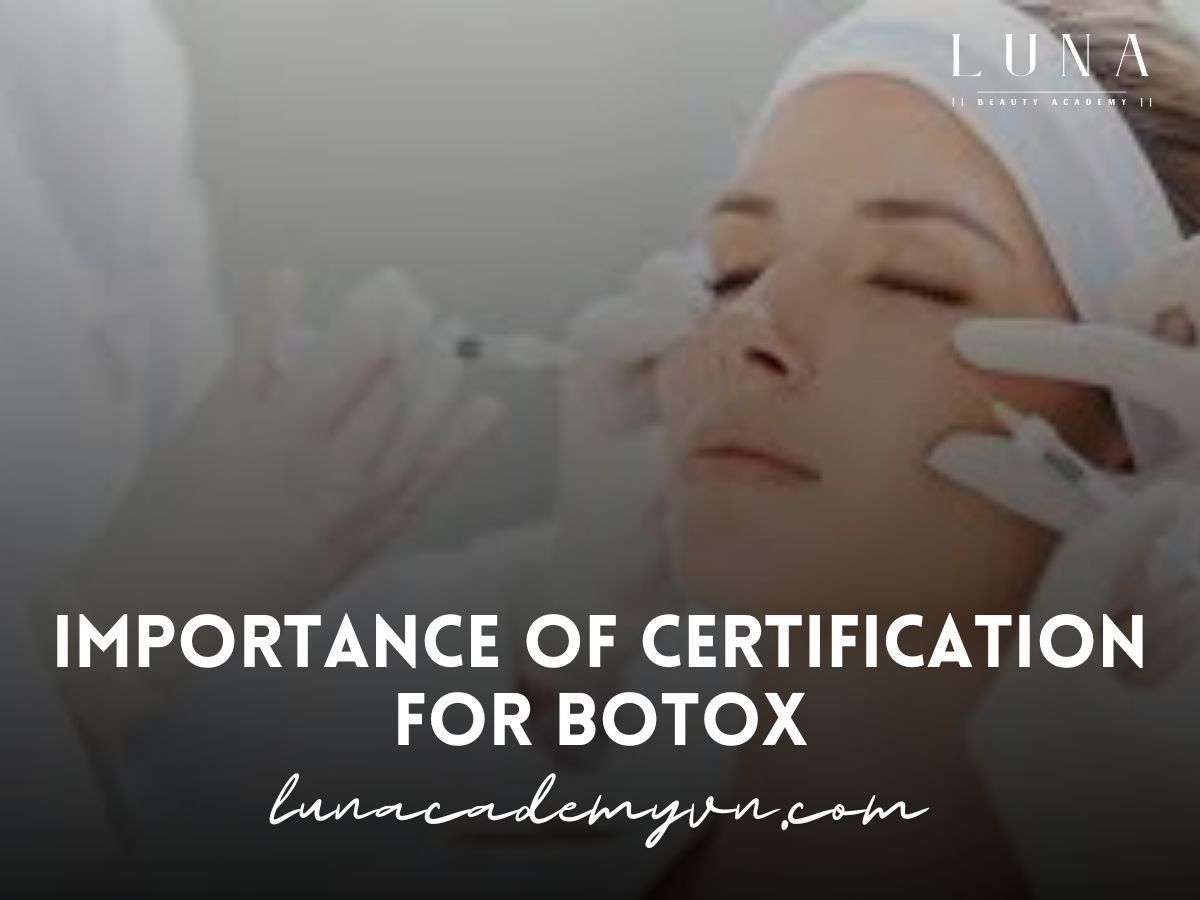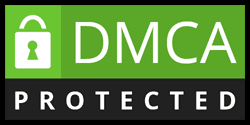The demand for non-surgical cosmetic treatments has seen a sharp rise in recent years, with Botox injections at the forefront of these procedures. Botox is widely recognized as one of the most effective treatments for reducing wrinkles and fine lines, providing a youthful appearance without the need for invasive surgery. However, administering Botox is not as simple as it might seem. To ensure patient safety, satisfaction, and the best possible results, it is crucial to have the appropriate training and qualifications.
This is where certification for Botox becomes essential. In this blog, we will explore the significance of Botox certification, why it’s necessary for aesthetic practitioners, and how you can obtain it to advance your career in the field of aesthetic medicine.
Table of Contents
ToggleWhy is Certification for Botox Important?

Importance of Certification for Botox for Aesthetic Practitioners
Botox, also known as botulinum toxin, is a powerful injectable that temporarily paralyzes muscles to reduce the appearance of wrinkles and fine lines. When used correctly, it provides a natural, youthful look. However, as with any medical procedure, Botox injections carry certain risks, and improper administration can lead to unwanted side effects, complications, or unsatisfactory results.
Here are some of the key reasons why certification for Botox is crucial for any practitioner:
- Patient Safety and Well-Being: Administering Botox requires a deep understanding of facial anatomy and the injection techniques necessary to deliver safe, effective results. Certification ensures that the practitioner has undergone the proper training to handle Botox injections safely, minimizing the risk of complications such as asymmetry, bruising, or drooping.
- Legal and Ethical Considerations: In many regions, Botox injections are considered medical procedures that should only be administered by qualified healthcare professionals. Certification for Botox is often required by local regulations and laws to legally perform these injections. By obtaining certification, you ensure that you are compliant with these regulations and able to provide services within legal boundaries.
- Building Trust with Patients: When patients seek Botox treatments, they want to be sure they are receiving care from a skilled and knowledgeable professional. A certification for Botox demonstrates that you have undergone rigorous training and have the expertise required to achieve excellent results. It helps build patient confidence and trust, which is essential for creating long-term relationships and fostering a successful practice.
- Enhancing Your Professional Reputation: In the competitive aesthetic industry, standing out is vital. Botox certification helps set you apart from unqualified injectors, giving you an edge over others in the field. It demonstrates your commitment to professional development and your dedication to providing high-quality care. Furthermore, patients are more likely to choose a certified injector, knowing they are in safe hands.
- Expanding Your Career Opportunities: Obtaining certification for Botox opens up a wide range of career opportunities in the aesthetic field. Whether you are looking to work in a medical spa, a dermatology clinic, or start your own injectable practice, having certification can significantly boost your chances of employment or attracting clients.
Who Can Pursue Certification for Botox?

Importance of Certification for Botox for Aesthetic Practitioners
One of the most important aspects of Botox injections is that they should be administered only by qualified healthcare professionals. In many countries, Botox certification is restricted to licensed practitioners, including:
- Doctors (MDs, DOs)
- Nurses (RN, LPN)
- Dentists
- Physician Assistants (PAs)
In some regions, other medical professionals may also be eligible to pursue Botox certification, but it is essential to verify the local regulations governing Botox injections and certification.
Before enrolling in any Botox certification course, ensure that you meet the prerequisites required by your country or state. Certification for Botox is intended for professionals who are already familiar with basic medical procedures, as Botox injections involve precise anatomical knowledge and a solid understanding of human physiology.
What Does Certification for Botox Involve?

Importance of Certification for Botox for Aesthetic Practitioners
Obtaining certification for Botox typically requires both theoretical learning and practical, hands-on experience. Here’s a breakdown of the steps involved in becoming certified:
1. Enrolling in a Botox Training Program
The first step in obtaining certification is to enroll in a reputable Botox training program. Botox courses are offered by many organizations, including medical spas, training academies, and professional aesthetic institutions. It is essential to choose a course that is accredited and led by experienced instructors.
During the training, you will learn essential topics such as:
- Facial anatomy: Understanding the muscles, nerves, and structures of the face is crucial for Botox administration. Incorrect placement of the injection can result in complications, such as drooping eyelids or asymmetry.
- Botox indications and contraindications: Not all patients are suitable candidates for Botox, and a certified injector must know how to assess whether a patient should undergo the procedure.
- Injection techniques: Learning how to properly inject Botox into various facial areas, including the forehead, crow’s feet, and frown lines, is a core component of the training. You’ll also learn how to manage the dosage for different patients to avoid over-treatment or under-treatment.
- Post-treatment care and management: Understanding the aftercare procedures to ensure patients achieve the best results is an essential part of the training. You’ll learn how to address potential side effects and provide your patients with guidance for optimal recovery.
2. Hands-On Practice
While theoretical knowledge is essential, Botox certification courses typically include practical, hands-on training to help you develop your injection skills. Under the guidance of a qualified instructor, you will practice administering Botox on live models or mannequins to gain confidence and perfect your technique. This experience is crucial for ensuring you can perform Botox injections effectively in a real-world setting.
3. Exam and Certification
After completing the training program, you will typically need to pass an exam to receive your certification for Botox. This exam may be written or practical (or both) and is designed to test your knowledge of facial anatomy, injection techniques, and Botox-related procedures. Upon successful completion, you will be awarded a certificate that confirms your ability to safely and effectively perform Botox injections.
It’s important to note that Botox certification is not a one-time achievement. In many cases, injectors are required to participate in ongoing education and renewal courses to maintain their certification. This ensures that they stay up-to-date with the latest techniques, safety guidelines, and industry trends.
Choosing the Right Botox Certification Program

Importance of Certification for Botox for Aesthetic Practitioners
With so many Botox certification programs available, choosing the right one can be overwhelming. Here are some key factors to consider when selecting a training course:
- Accreditation: Ensure the program is accredited by a recognized institution or professional association in the aesthetic industry.
- Instructor Experience: Look for instructors who are experienced in administering Botox and have a strong reputation in the aesthetic field.
- Course Content: Review the course syllabus to ensure it covers the essential topics, including facial anatomy, injection techniques, and patient assessment.
- Hands-On Training: Choose a course that offers plenty of hands-on practice to ensure you gain the practical experience necessary to perform Botox injections safely.
- Patient Safety Focus: The program should prioritize patient safety, teaching you how to minimize risks and handle complications.
Conclusion
Certification for Botox is a vital step for anyone looking to specialize in aesthetic injectables. Whether you are a doctor, nurse, or dentist, obtaining Botox certification ensures that you have the knowledge and skills necessary to provide safe and effective treatments. Not only does it help you build trust with patients, but it also enhances your career prospects in the competitive field of aesthetic medicine.
If you’re ready to take the next step in your career, consider enrolling in a Botox certification program today and start your journey toward becoming a skilled, certified Botox injector. With the right training and certification, you can offer patients a high level of care, providing them with the rejuvenating results they desire while ensuring their safety and satisfaction.
Contact us via other platforms if you have any questions or requests that need to be answered quickly.
Tiktok: www.tiktok.com/@lunabeautyacademy6
Hotline: 034 254 0228
Email: lunabeautyacademy@gmail.com
Address: No. 29, Alley 140/1/2, Lane 140 Nguyen Xien, Thanh Xuan, Hanoi
Luna wishes you success and hopes you will have the best experiences at the academy. If you need advice or answers about anything, please leave your Contact Information With Us, the Luna team will contact you soon. Thank you for reading this article.


















